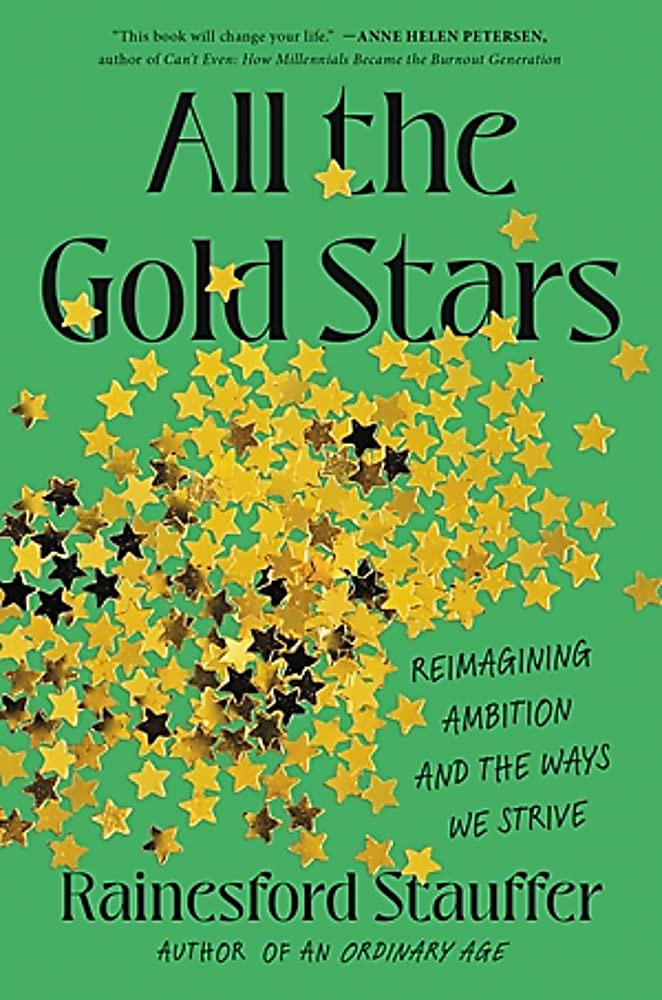Ambition evades a single, all-encompassing definition and exists instead as a virtue and a vice, a compliment and an insult, a framework for stepping into your own power, and a way to question what power is at all. – Rainesford Stauffer
I’ve been working my way through Rainesford Stauffer’s book, All the Gold Stars: Reimagining Ambition And The Ways We Strive. As Stauffer herself states, the book isn’t a complete history or analysis of ambition. Instead, it’s an attempt to extract ambition from the maw of capitalism, colonialism, and Calvinist morality in order to expand our notion of striving to encompass our holistic needs as people and communities.
There are dictionary definitions of ambition that Stauffer notes, which are fine, if simplistic. The Cambridge Dictionary states ambition is “a strong wish to achieve something”, while Britannica refers to it as “a particular goal or aim: something that a person hopes to do or achieve.” Such definitions are decontextualized, to say the least. They ignore how ambition functions within the culture. How it is co-opted by capitalism, thus feeding individualism and reinforcing stratifications of power and privilege based on who is allowed to be ambitious, how, and when. How the language around ambition implicates our individual morality in whether we achieve and succeed, ignoring the systemic barriers many of us face in manifesting our dreams.
If we’re going to properly unpack ambition for ourselves then we’ll need to cover all of that and more. I expect I’ll return to Stauffer again and again over the course of this next year as we do it. But this being a newsletter and not a 263-page book, we’ll have to take it in more bite-sized pieces.
So, first, it’s worth thinking about what our definition of ambition is and where it might have come from. What experiences have guided the formulation of your definition? Based on your definition, are you ambitious? Why or why not?




